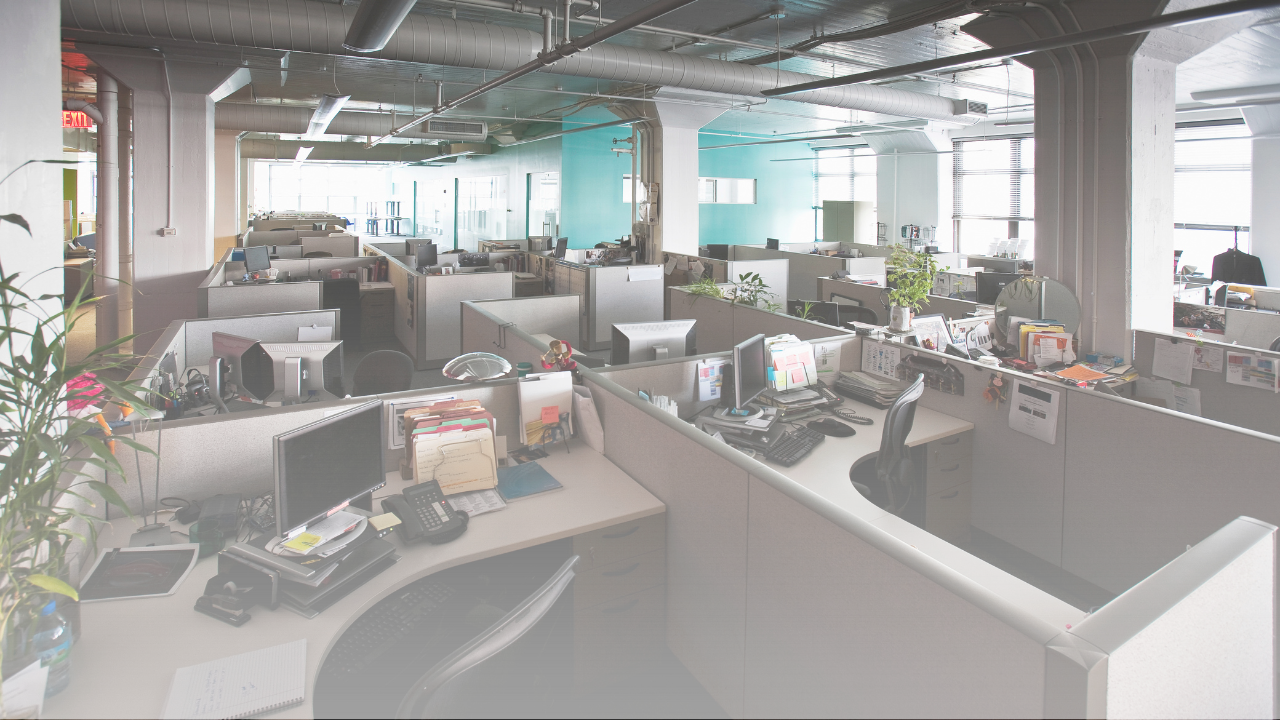The Haunting Decline of Commercial Office Space
In the world of real estate, the once-reliable commercial office space is facing a tumultuous period. Asset owners are grappling with a stark reality: the traditional office model is becoming increasingly obsolete. The signs of distress are evident, supported by a cascade of statistics and data that paint a bleak picture of the future for these properties.
David Sacks on the All-In-Pod said landlords and banks are dealing with this by kicking the issue can down the road hoping that in time it’ll turn around again… how long that’ll be is very unknown but it’s not anytime soon.
According to recent studies, vacancy rates in commercial office spaces have been steadily climbing over the past few years. In major cities, vacancies have reached alarming levels, with some areas reporting rates upwards of 15%. This surplus of available space has led to a downward pressure on rental prices, further squeezing the profit margins of asset owners.
Furthermore, the pandemic-induced shift towards remote work has accelerated this decline. Companies have realised the feasibility and benefits of remote work, leading to a reassessment of their office space needs. Many have opted to downsize or even abandon their physical offices altogether, opting instead for remote work arrangements.
The consequences of this trend are dire for asset owners. With dwindling rental incomes and mounting operational costs, many are struggling to stay afloat. Some are facing the grim prospect of bankruptcy as they find themselves unable to service their debts or cover expenses.
However, amidst this sea of uncertainty, there is a beacon of light: the hospitality sector. As commercial office spaces falter, hospitality properties are thriving, thanks to a shift in focus towards providing experiences and creating spaces of belonging.
Modern workers are no longer satisfied with sterile, uninspiring office environments. They crave dynamic, engaging spaces that foster creativity, collaboration, and community. Progressive landlords are engaging flexible office space operators & coworking operators who are positioned as a new wave of hospitality companies that are capable of elongating themselves into fresh areas of amenities and services that go beyond the traditional office setting.
Data from market research firms corroborate this shift. Studies have shown a significant uptick in demand for experiential spaces, such as coworking hubs and serviced offices. These spaces offer flexibility and convenience, allowing individuals and businesses to scale their operations up or down as needed.
One of the key players in this transformation is the rise of flexible office spaces. These innovative operators offer a diverse range of services, including private serviced offices, coworking spaces, meeting rooms, event venues, and even on-site cafes. By catering to the diverse needs of their members, they have positioned themselves exceptionally well in the midst of the doom and gloom facing traditional office spaces.
It’s the membership models that have emerged as a popular alternative to traditional leasing arrangements. Businesses are increasingly opting for flexible office solutions that offer short-term commitments and customisable packages. This flexibility not only allows companies to adapt to changing circumstances but also helps mitigate the long-term liabilities associated with owning or leasing commercial office space.
The pain facing commercial office space is real and significant. Asset owners are grappling with declining rental incomes, rising vacancies, and mounting financial pressures. However, amidst this turmoil, there is an opportunity for transformation and reinvention.
By embracing the principles of hospitality and flexibility, commercial office spaces can adapt to the changing needs of modern workforce and the rise of flexible office spaces offers a glimpse into a future where dynamic, experiential environments replace the outdated and uninspiring traditional office model.
As asset owners navigate this transition, they must be willing to innovate and evolve. Those who embrace change and embrace the shift towards experiential spaces will not only survive but thrive in the new era of commercial real estate.



